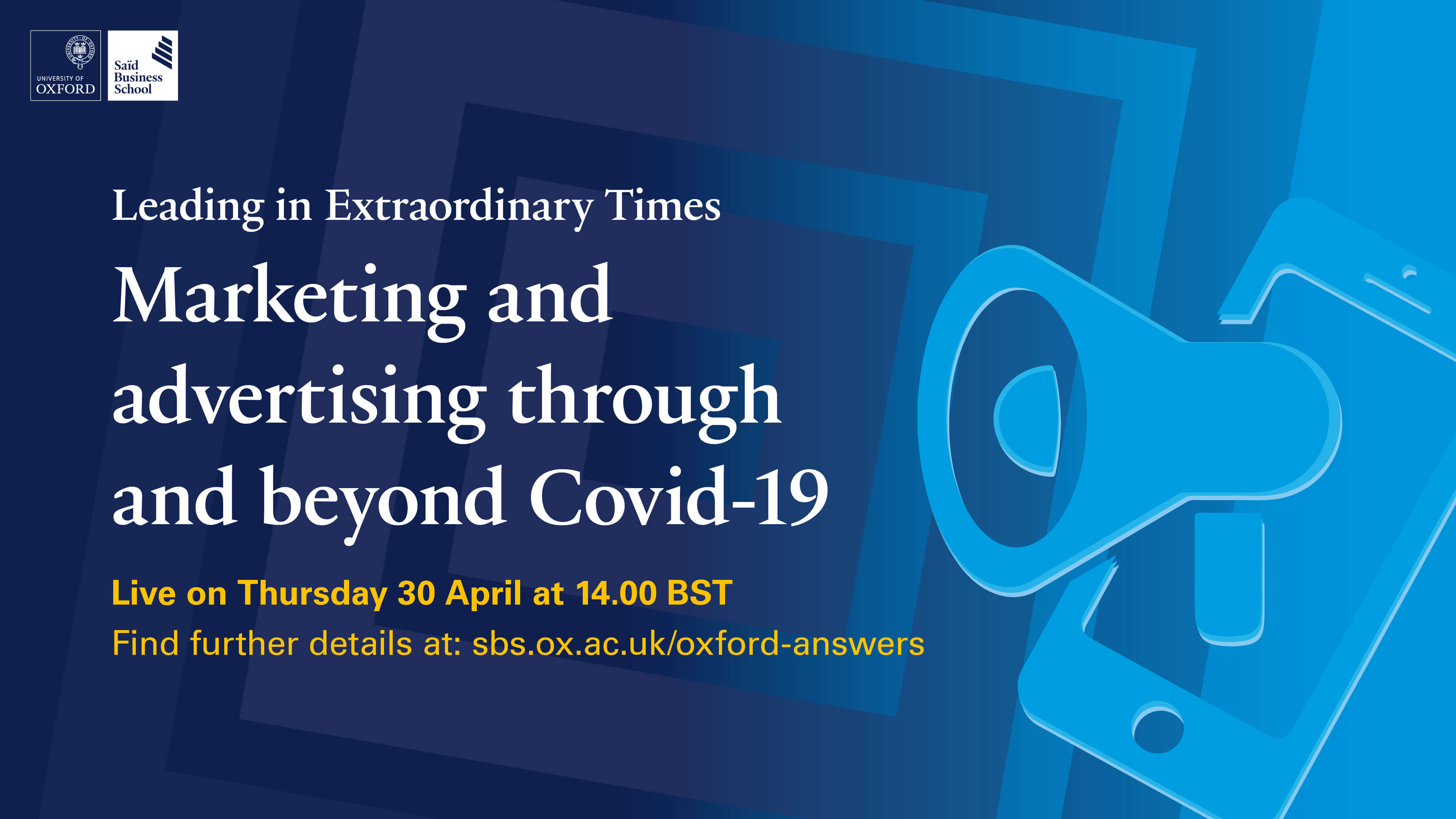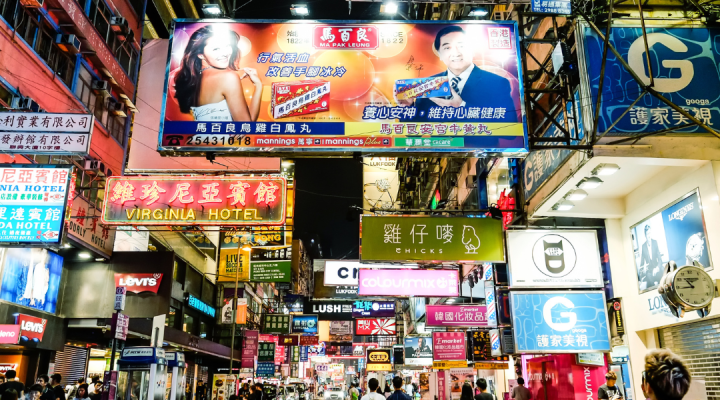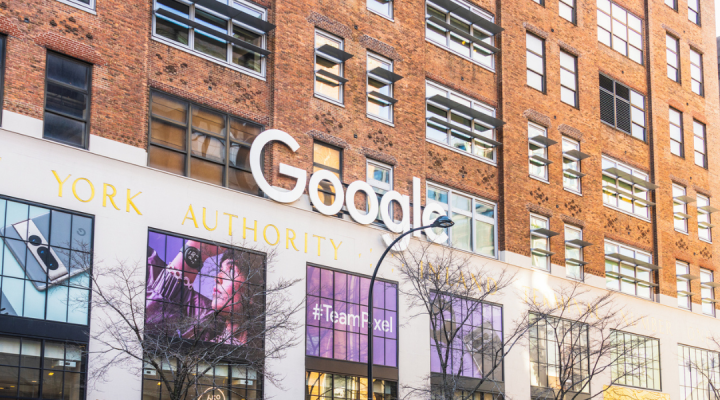Marketing and advertising through and beyond Covid-19

Hosted by Professor Andrew Stephen, L’Oreal Professor of Marketing, in conversation with Marketing Leaders from the Oxford Future of Marketing Initiative: Martyn Etherington, CMO, Teradata; Seth Rogin, Associate Fellow and Julie Kollman, Global Head of Insights, Moet Hennessy. The panel was discussing what brands and marketers should now be focusing on to rebuild brands post-crisis and aspects that marketing leaders should be taking into consideration.
Summary
Marketing leaders discussed how to tread the fine line between 'opportunity and opportunism' when promoting brands during the Covid-19 crisis.
Martyn Etherington, Chief Marketing Officer of enterprise technology firm Teradata joined Julie Kollman, Global Head of Insights at Moët Hennessy, part of luxury conglomerate LVMH, and Seth Rogin, Associate Fellow and CEO of Magnolia Media Partners for the discussion, with Professor Andrew Stephen, L'Oréal Professor of Marketing and Associate Dean of Research.
The panel said that brands suffer disproportionately when they make big cuts to marketing budgets during difficult times, citing a report from Kantar discussed in a recent episode of the Oxford Saïd and Kantar Future Proof podcast.
In addition, they reminded us that strong brands tend to recover faster than weaker brands, which means that leaders should keep investing in drivers of brand strength.
'There’s good evidence to suggest that: in times of crisis don’t turn the lights off,' Stephen said
Rogin said that the crisis presents opportunities for growth, as well as challenge. Brands such as GE, Disney, HP, and Microsoft had all taken off during financial crises, by 'doubling down authentically on what they are, what they stand for, and delivering quality at the right price,' he said.
Etherington added that the key to success is authenticity; and that brands offering help for the right reasons will be rewarded. Rogin urged brands to avoid cynical campaigns, such as those launched after 9/11 and the tsunami, which 'made you wince.' He added that 'For marketers in times of public challenge, the perilous distance, the width of the line between opportunity and opportunism is in inverse proportion to the size of the crisis. The bigger the crisis, the finer the line.'
Kollman said that the crisis had sped up existing trends; moving industry online within six weeks, instead of another three years. It had also sharpened consumer focus on climate change and sustainability, she said.
To maintain brand profile, she recommended that businesses focus on:
- Protecting employees
- Giving back to communities
- Avoiding selling by 'taking advantage' of the crisis
- Keeping regular communications
- Listening to customers, and giving them what they need.
The discussion, Marketing and advertising through and beyond Covid-19, was staged as part of the Extraordinary Leadership series.




